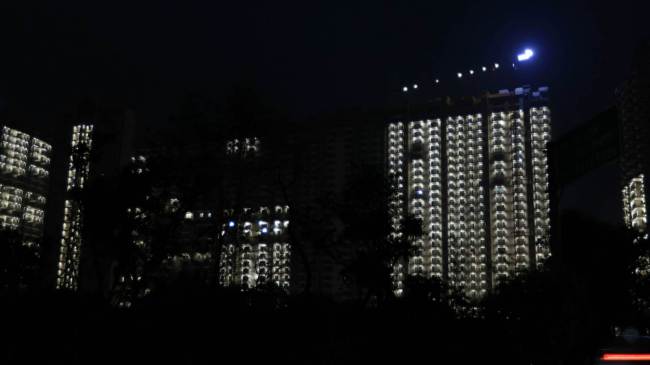Opinion Who’s my neighbour: Sharing sorrows with those who share our walls
What my neighbours see is my daily routine. Any change in it speaks louder than the words we might exchange
 As I find my feet in a new routine, I am in awe at how the knowing smiles of those I share space with have become my elixir. Express Photo by Gurmeet Singh07052025
As I find my feet in a new routine, I am in awe at how the knowing smiles of those I share space with have become my elixir. Express Photo by Gurmeet Singh07052025 Growing up in government houses — thanks to my parents’ occupations — the idea of neighbours has always been blurry for me. Sometimes, children living in the adjacent quarters became friends, philosophers, and guides. And when our house was in an isolated location, my neighbours were those whom I call my “permanent roommates” — my parents and my sister.
It was only at the age of 17, when I entered college and started staying in a hostel, that I first understood the meaning of “neighbourhood”. Borrowing and lending abounded, and my hostel neighbours understood my body clock. Much more than friends, they lived through my playlist and knew when the tide seemed tough. This was not surprising, for we might conceal our thoughts, but our routine — or the lack of it — speaks louder than words.
My tryst with neighbours thus continued — the landlady in Hyderabad who learnt quickly that despite my love of novelty, I can eat dosas everyday; the landlady in Florida who grudgingly walked past the open windows for I thrived on fresh air; the colleagues in Jaipur who ditched the clock for the timing of my morning walk to start their day; my batchmates in Nagpur who identified my room even from a distance by the green shoots and warm lights visible from my windows.
These experiences taught me to love the unspoken bond we share with those we share our walls with. But I was soon to learn that these ties, formed on the probability of sharing a space in the urban maze, might also speak the loudest.
Nearly three months ago, during a time of great emotional upheaval, my identity, self-confidence, strength — everything disappeared. The first casualty was my family, and the next, my routine. Busy mourning the loss of the living, I did not mourn the loss of my routine.
When I got back slowly, making my daily commute to the office and back,
the heart was still aching and the soul still wanted to shout. But the mere thought of my neighbours hearing my wails made me retreat further within, for the four walls seemed the only safe space within which to mourn. But routine spoke louder than my words.
The day I restarted my walking and running routines, an elderly neighbour caught me immediately, worried about my long absence. I tried my best to blame it on official travel, but my gaunt frame spoke of something else. The day I seemed mentally back to work, my senior and his wife invited me home for dinner. The day I got back to wearing saris after weeks of pulling out the first kurta I could see (which was telling, for a handloom- and sari-lover like me), a domestic help working in my colony stopped my car to compliment me, telling me she missed seeing me dressed up for work. The day I went back to FabIndia, the store I often frequented, the staff there gathered as they were not used to my prolonged absence. They might not fall under the definition of neighbours, as a dictionary may define it, but in my understanding of community and those we share space with, these are my neighbours, and they have seen me as a routine.
And finally, when I resumed travelling for work, did I expect to be understood by the person in the neighbouring seat on my flight? If home was a safe space to cry, so was an alien space like an airplane. The idea of neighbourhoods had another lesson for me – that even transient neighbours can see you, feel with you, and leave you with imprints you remember through life.
As I find my feet in a new routine, I am in awe at how the knowing smiles of those I share space with have become my elixir. If I ever lose myself again, my neighbours may sense it before I do. And the next time I knock on doors where I am not likely to be understood, I will remember these windows. My neighbours and I may not be borrowing salt and sugar from each other, but I have shared my sorrow, while they have lent me their optimism. I am now learning to live again.
The writer is an officer of the Indian Revenue Service (Income Tax). The views expressed are personal






